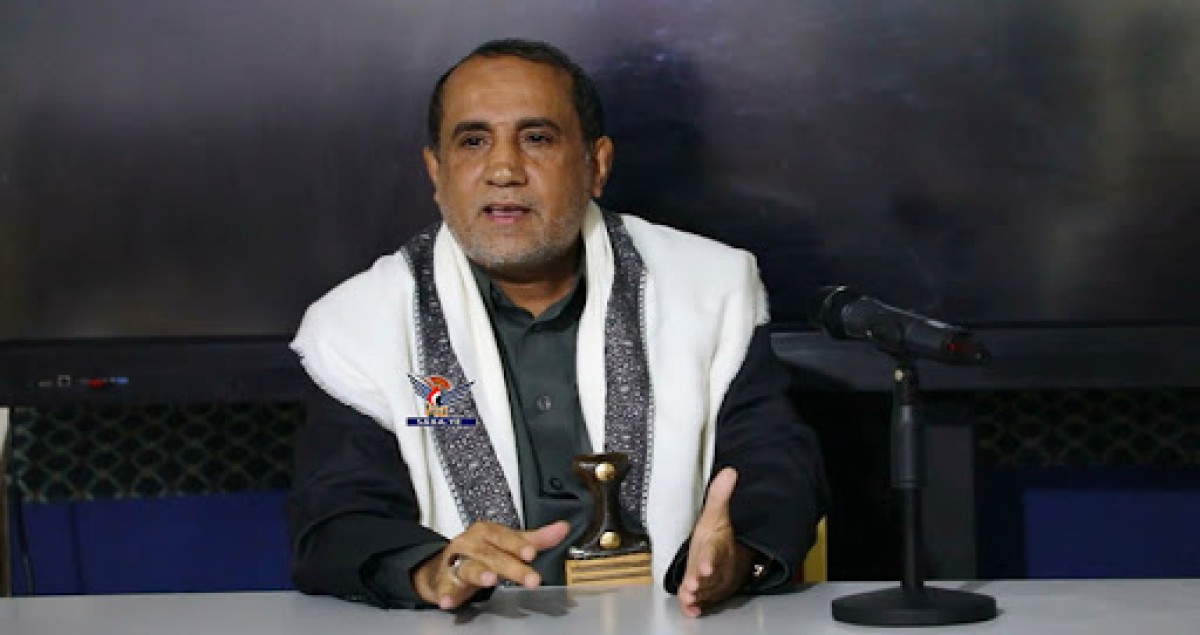Ahmed Hamed.. “Houthi mine” on shipping lines


An influential figure among the Houthis to the point that some consider him the strongest Houthi civilian leader outside the Houthi family, and the man who controls the fateful decisions of the militias.
Ahmed Hamed, a name that has resurfaced after it appeared in an investigation by a Swiss non-governmental organization that revealed that the naval attacks launched by the Houthis are supervised by a center affiliated with them with humanitarian cover..
An investigation by the InPact organization, a copy of which was received by Agence France-Presse, stated that the operations that targeted shipping traffic off the coast of Yemen were supervised by the “Humanitarian Operations Coordination Center.”
The center was established last February by a decree issued by the head of what is known as the “Supreme Political Council,” Mahdi Al-Mashat, the highest “political official” in the militias.
The Swiss organization confirmed that the center is run by “Ahmed Hamed, an influential figure with the Houthis, and close to Al-Mashat.”
“Black Biography”
In a report issued on Yemen in 2021, a United Nations team of experts considered that Hamid “may be the most powerful Houthi civilian leader outside the Houthi family.”
Ahmed Muhammad Yahya Hamid became the militia leader’s longest arm, and a tool for legitimizing Iranian expansion in Yemen, in addition to controlling the joints of the state.
Hamid collects in his hands all the keys to the funds in the economic and financial institutions that the militias exploit as a front to finance their war.
He belongs to "Marran", the main stronghold of militia leaders in Saada, and his nickname is "Abu Mahfouz".
He was appointed in early 2018 as director of the so-called presidential office in the Houthi Governing Council in Sana'a, after he was Minister of Information, to act as one with absolute authority to humanize all state institutions and departments, and limit their leadership to extremists coming from Saada.
Parallel authority
Hamid established a parallel authority to the coup government, to become a source of decision-making outside the powers of the so-called “Supreme Political Council,” which is headed by the leader Mahdi Al-Mashat, by creating institutions and departments that he attached directly to his office in the so-called presidency of the country.
Hamid continued to marginalize all the leaders of the first ranks of the Houthis, relying on open and direct powers from the militia leader, Abdul-Malik al-Houthi, as his long arm in Sanaa.
His powers increased after his dismissal, in 2021, of the Minister of Water and Environment in the coup government, after he rejected instructions to appoint leaders belonging to the extremist Saada wing in the departments and branches of his ministry, which reap the lion’s share of the funding of international donor organizations for water, environment, and emergency response.
p>At that time, Al-Ain News learned from sources in Sana'a that Hamed had begun forming a security information unit that serves as a spy and intelligence cell.
The mission of this unit was to provide data and information about all the leaders affiliated with the Congress Party and some of the Houthi leaders belonging to the Sana’a wing, many of whom previously worked in state institutions before the Houthi coup and the overthrow of Sana’a.